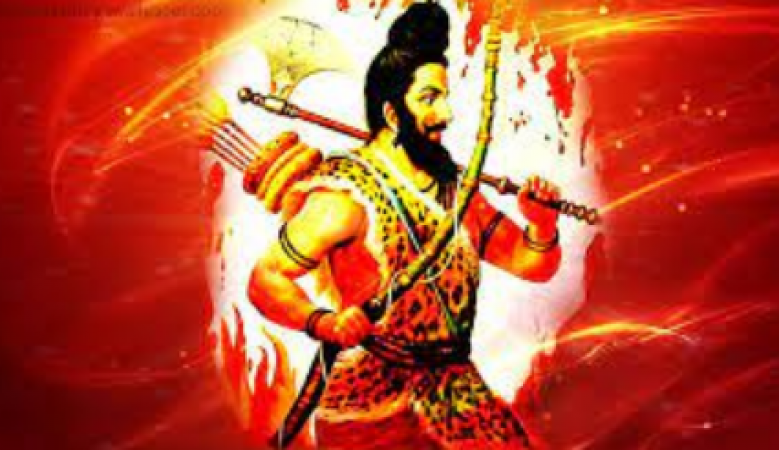
Worshiping deities has been an integral part of human culture and spirituality for centuries. In Hinduism, the worship of various gods and goddesses holds immense significance. Lord Parshuram and Matar are two revered deities who have captivated the devotion and reverence of millions of followers worldwide. In this article, we delve into the importance and rules of worshiping Lord Parshuram and Matar, shedding light on their divine qualities and the practices associated with their worship.
I. Lord Parshuram: The Sixth Avatar of Lord Vishnu
Lord Parshuram, the sixth avatar of Lord Vishnu, is known as the warrior sage who represents righteousness, valor, and devotion. He is regarded as the eternal embodiment of divine anger and righteous fury. Worshiping Lord Parshuram is believed to grant his devotees protection, knowledge, and spiritual enlightenment. Here are some key aspects of worshiping Lord Parshuram:
Devotional Practices:
Regular prayer and meditation: Devotees of Lord Parshuram engage in regular prayer and meditation to seek his blessings and guidance.
Chanting mantras: The recitation of Parshuram's mantras, such as the "Om Reem Parshuramaya Namaha," is a common practice during worship.
Fasting: Observing fasts on auspicious days associated with Lord Parshuram, like his birth anniversary, can enhance devotion and spiritual progress.
Rituals and Offerings:
Temple visits: Pilgrimage to temples dedicated to Lord Parshuram, such as the Parshuram Temple in Maharashtra, holds immense significance in his worship.
Offerings: Devotees offer flowers, incense, fruits, sweets, and sacred threads (yagnopavit) to seek Lord Parshuram's blessings.
Abhishekam: The ceremonial bathing of Lord Parshuram's idol with milk, water, honey, and other sacred substances is an essential ritual in his worship.
Significance of Parshuram Jayanti:
Parshuram Jayanti, Lord Parshuram's birth anniversary, is celebrated with great enthusiasm by his followers. Special prayers, processions, and discourses on Lord Parshuram's life and teachings are organized on this day.
The celebration of Parshuram Jayanti is believed to invoke the divine grace of Lord Parshuram, offering devotees an opportunity to purify their souls and seek his blessings.
II. Matar: The Divine Mother
Matar, also known as Mataji or Maa, is revered as the divine mother and represents the creative and nurturing aspects of the universe. She symbolizes fertility, power, compassion, and unconditional love. Worshiping Matar is believed to bestow protection, prosperity, and spiritual growth. Here are the key aspects of worshiping Matar:
Devotional Practices:
Daily prayers and bhajans: Devotees of Matar engage in regular prayers, singing devotional songs (bhajans), and expressing gratitude for her divine grace.
Japa and meditation: Reciting Matar's mantras, such as the "Om Aim Hreem Kleem Matarayai Namaha," and practicing meditation helps in establishing a deeper connection with her divine energy.
Rituals and Offerings:
Puja and havan: Performing elaborate pujas and havans (fire ceremonies) dedicated to Matar are common practices. These rituals involve the invocation of the goddess through the chanting of mantras, offering of flowers, incense, and sacred items, and the lighting of lamps.
Fasting: Observing fasts on auspicious days associated with Matar, such as Navratri (nine nights) and Tuesdays, is considered highly beneficial. Fasting is believed to purify the body and mind while strengthening the devotion towards the goddess.
Significance of Navratri:
Navratri, a nine-night festival dedicated to the worship of Matar, holds immense significance in Hindu culture. Devotees observe fasting, perform devotional dances (garba and dandiya), and organize elaborate rituals during this period.
Navratri symbolizes the victory of good over evil and represents the different facets of Matar's divine energy through the worship of different forms of the goddess, such as Durga, Lakshmi, and Saraswati.
The worship of Lord Parshuram and Matar is a sacred practice that allows devotees to connect with the divine energy and seek their blessings. By understanding the importance and following the rules of worship, devotees can experience spiritual growth, protection, and enlightenment. Regular prayer, meditation, chanting mantras, performing rituals, and observing fasts are some of the ways to express devotion and receive the divine grace of Lord Parshuram and Matar. As followers continue to engage in these practices, they strengthen their connection with these revered deities, experiencing their profound influence in their lives.
Know about the roots of the ancient religion of India
Gomateshwara Temple: Monolithic Statues
The Significance of Bells in Temples: Unveiling Their Musical Charm